At a glance (short postcards)...
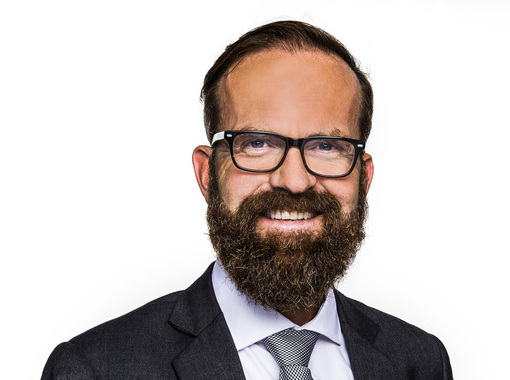
Societal Impact: Industry, Innovation and Infrastructure.
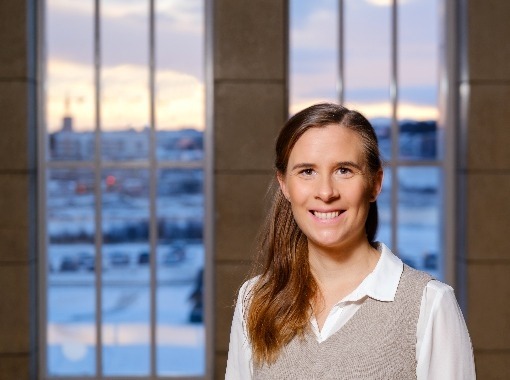
Societal Impact: Health and Wellbeing, which is one of Sustainable Development goals of the United Nations.
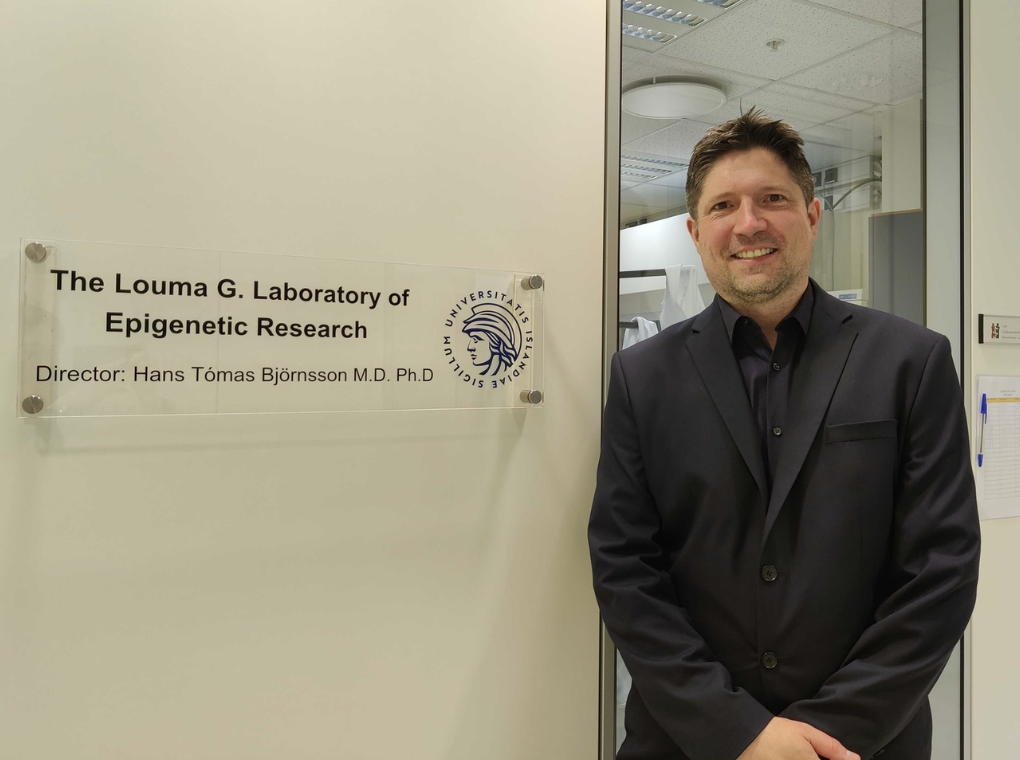
Societal Impact: Health and Wellbeing, which is one of Sustainable Development goals of the United Nations.

Societal Impact: Health, Education, Prevention and Awareness.
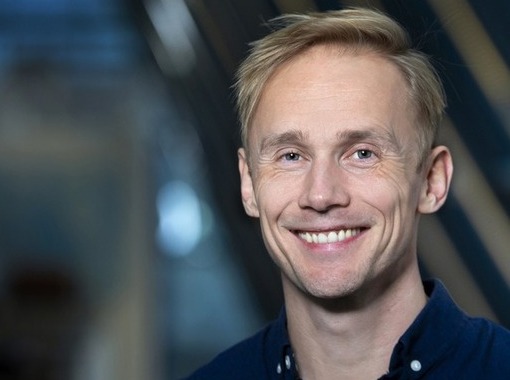
Societal Impact: Science and Health: Impacts state of knowledge in Biochemical Sciences.
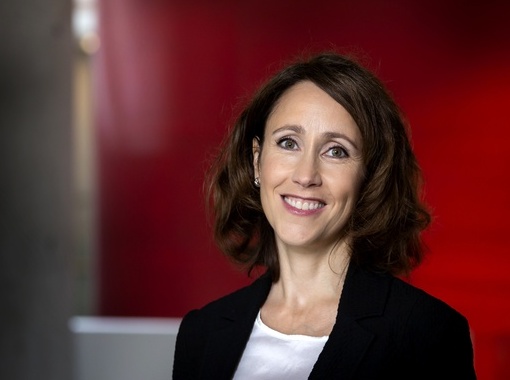
Societal Impact: Cultural Impact.
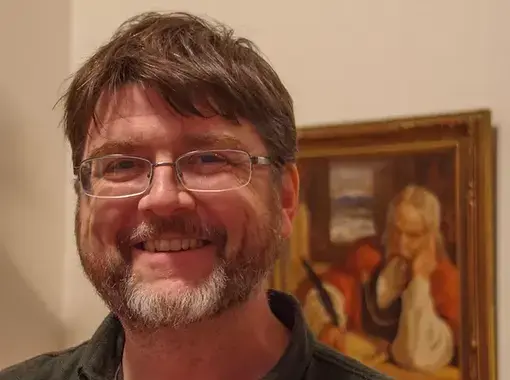
Societal Impact: Cultural Impact.

Societal Impact: Preservation of Culture.
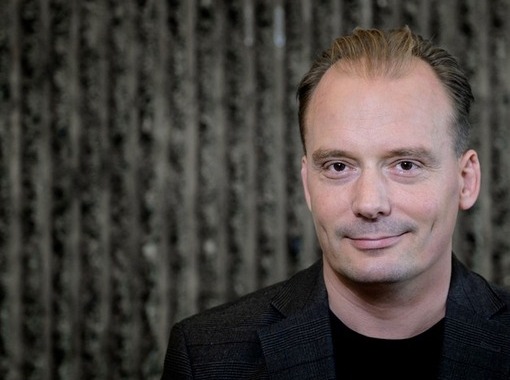
Societal Impact: Economical Impact.

Societal Impact: Cultural and Life below water.
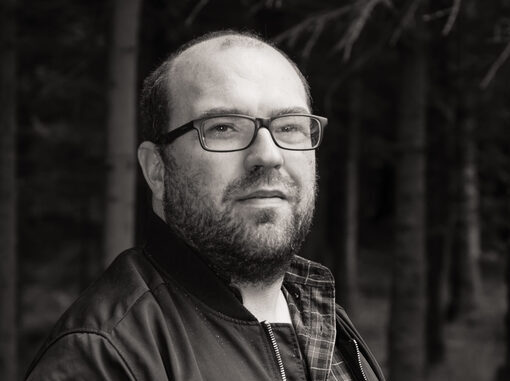
Societal Impact: Social Responsibility
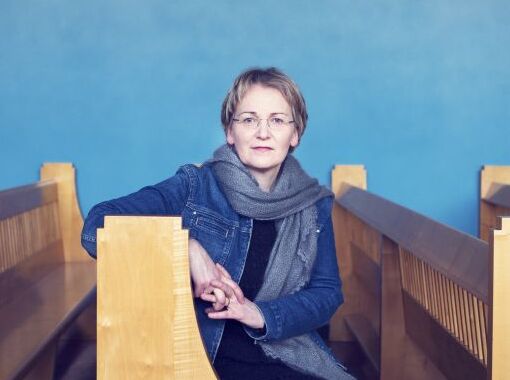
Societal Impact: Gender Equality and Climate Action.
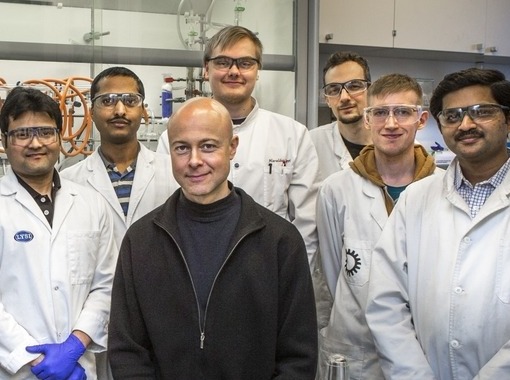
Societal Impact: Economy (reduces cost).
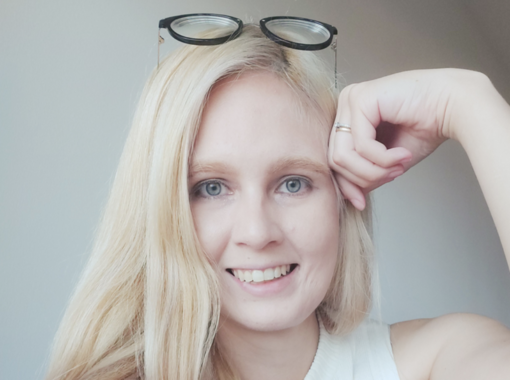
Societal Impact: Clean Water and Sanitation & Industry, Innovation and Infrastructure.
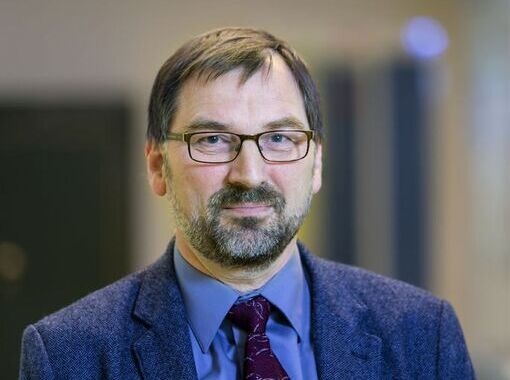
Societal Impact: Health and Economical impact.
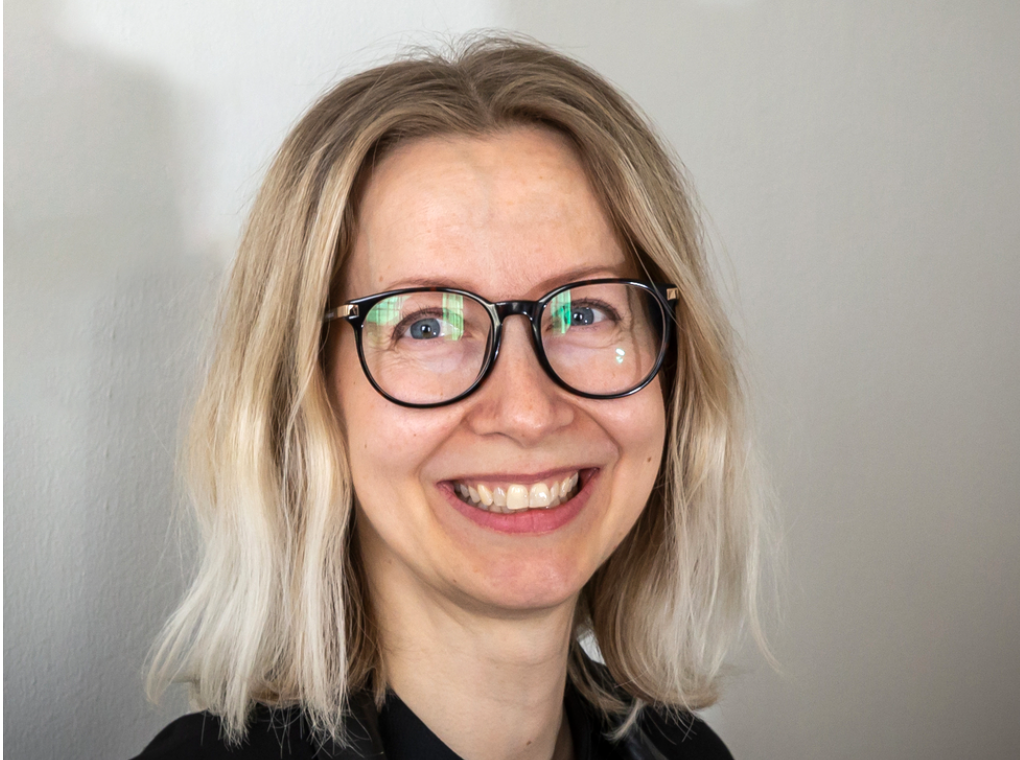
Societal Impact: Reduced Inequalities & Good Health and Well-being
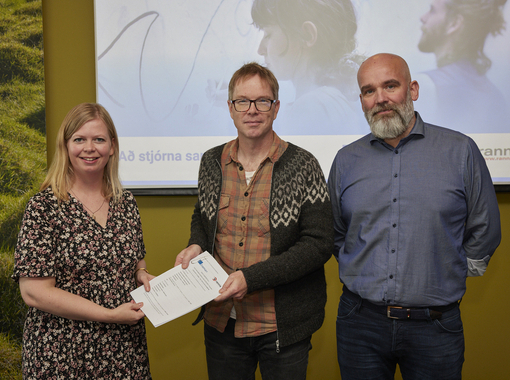
Societal Impact: Sustainable Cities and Communities
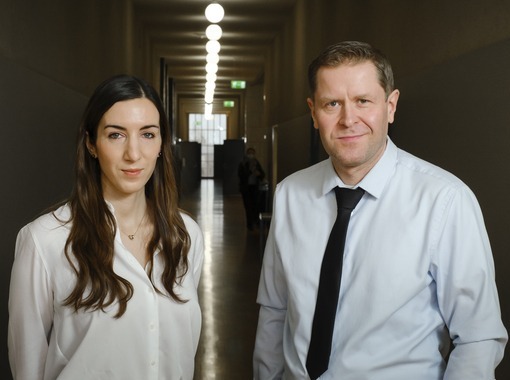
Societal Impact: Industry, Innovation and Infrastructure.
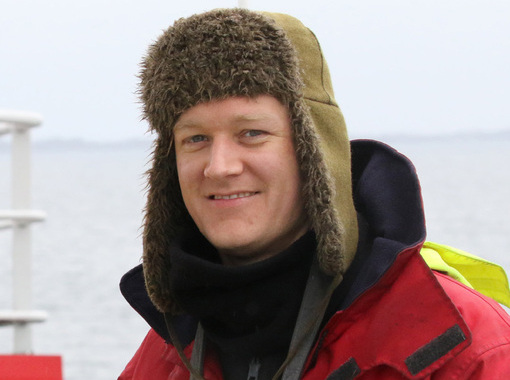
Societal Impact: Life below water, which is one of Sustainable Development goals of the United Nations.
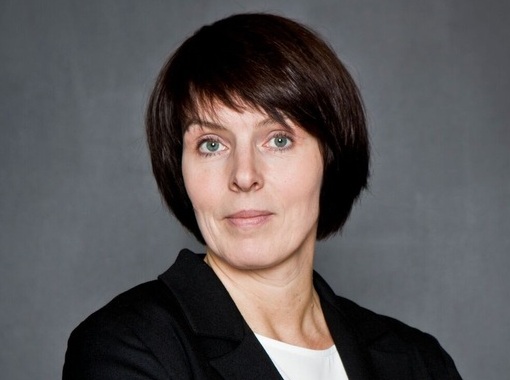
In a follow-up study, which began in the fall of 2017, iodine deficiency was diagnosed for the first time in the Icelandic population, and insufficient vitamin D intake was observed among a third of the participants. The research has already resulted in changed recommendations for pregnant women in relation to iodine and vitamin D.
Societal Impact: Good Health and Wellbeing.

The results of this research has been utilized in various ways in the development of regional policies in Iceland in recent decades.
Societal Impact: Reduced Inequalities, Quality Education and Peace and Justice and Strong Institutions.
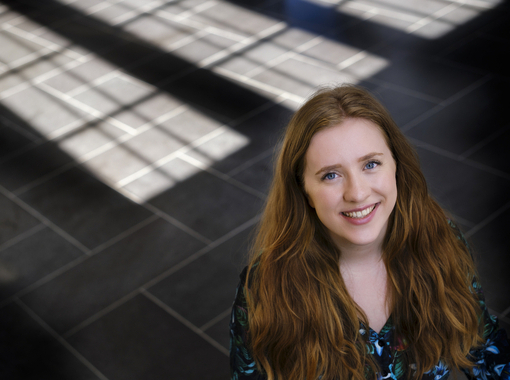
Societal Impact: Peace, Justice and Strong Institutions.
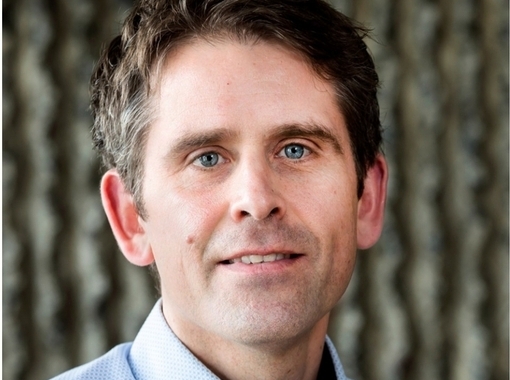
Societal Impact: Peace, Justice and Strong Institutions.
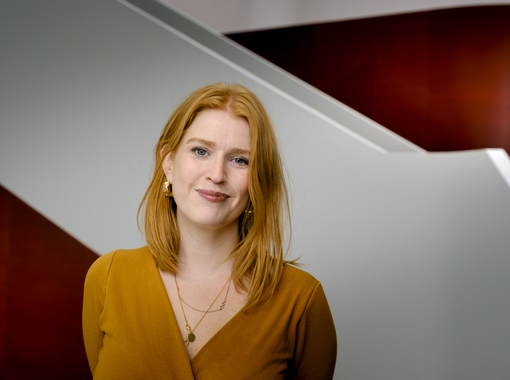
Societal Impact: Good Health and Wellbeing.
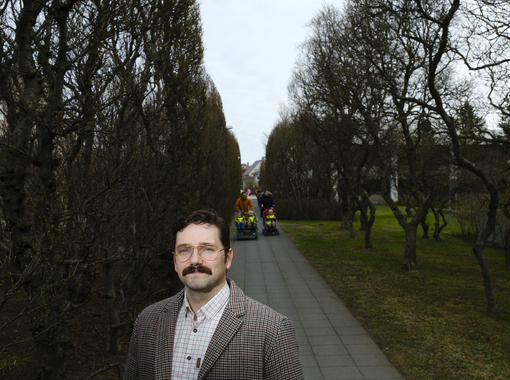
"The goal of my research is to measure the privilege experienced by different social groups, as well as evaluating to what extent equal opportunities exist in our society. To do this, I am evaluating social mobility between generations in Iceland, the main factors being education and income. These things tell us how the socioeconomic status of parents can affect their children," explains Emil.
Societal Impact: Reduced Inequalities.
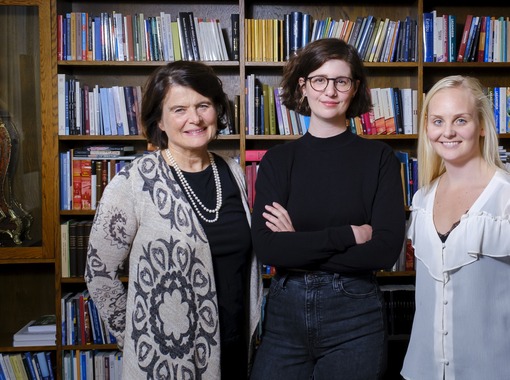
The scientists behind the study are Jóhanna T. Einarsdóttir, professor of speech pathology at the UI Faculty of Medicine and the School of Education; Iris Edda Nowenstein, MS in speech pathology from UI and PhD student in Icelandic linguistics; and Hjördís Hafsteinsdóttir, speech and language therapist.
Societal Impact: Quality Education & Reduced Inequalities
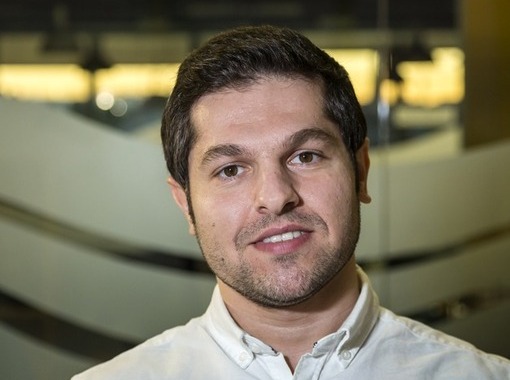
Societal Impact: Sustainable Cities and Communities and Industry, Innovation and Infrastructure.
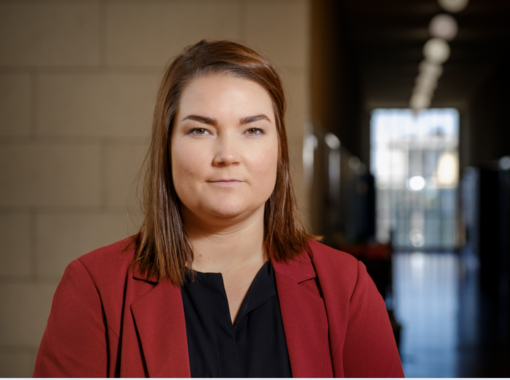
Societal Impact: Good Health and Wellbeing.
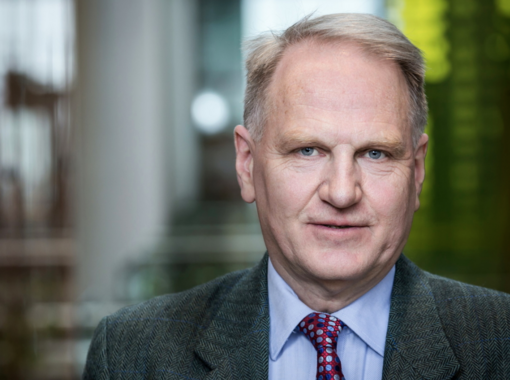
Along with his colleagues, he is currently investigating how newly qualified female teachers manage during their first two years as compulsory school teachers and to what extent their experiences in compulsory schools are related to preconceptions about sex and gender roles.
Societal Impact: Gender Equality and Quality Education.
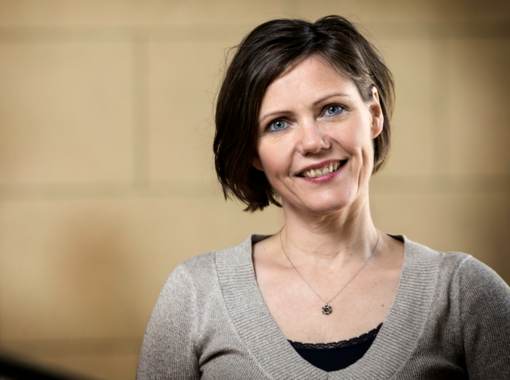
Societal Impact: Health and Wellbeing and Industry, Innovation and Infrastructure
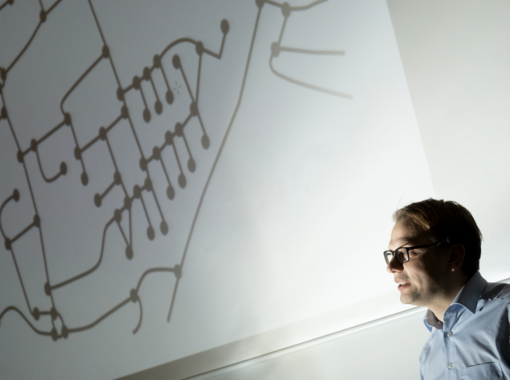
Societal Impact: Health and Wellbeing and Industry, Innovation and Infrastructure
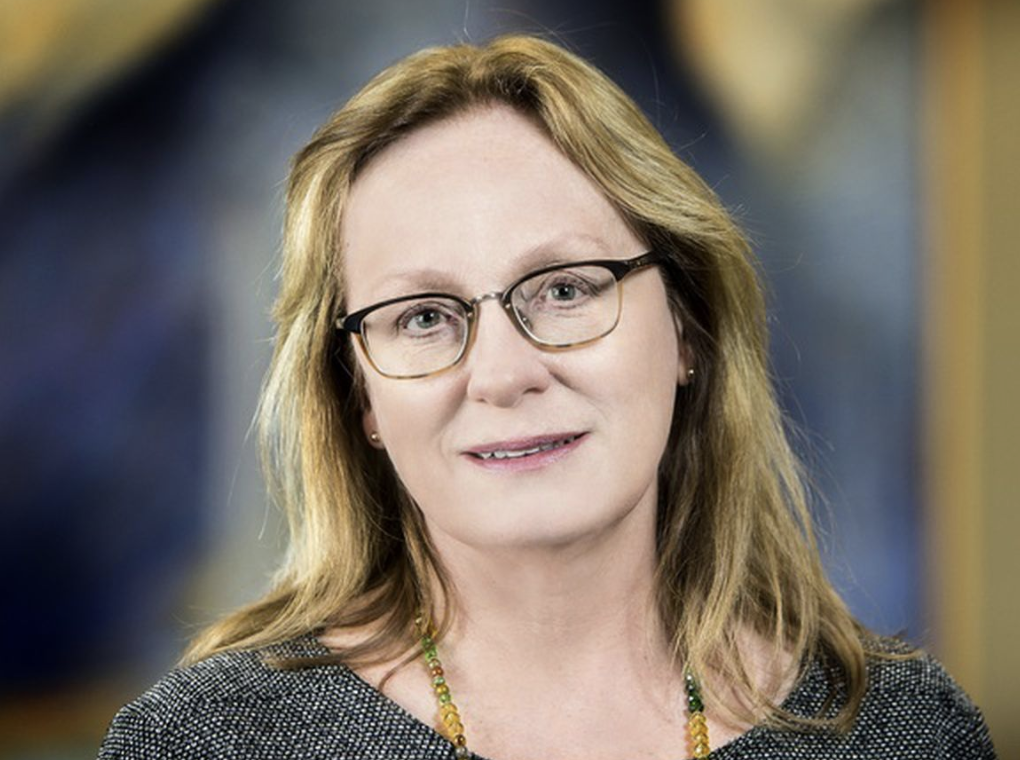
Societal Impact: Health and Wellbeing and Industry, Innovation and Infrastructure
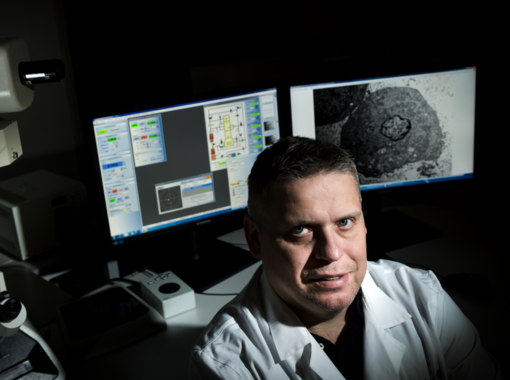
Societal Impact: Health and Wellbeing and Industry, Innovation and Infrastructure
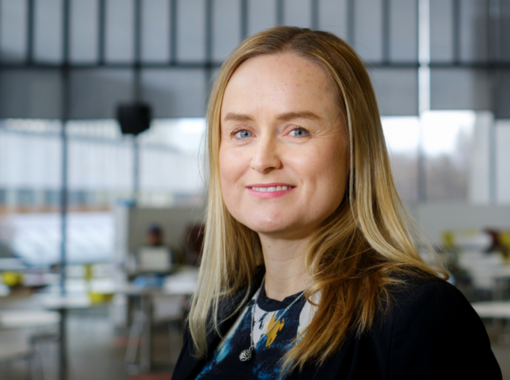
Societal Impact: Peace, Justice and Strong Institutions.
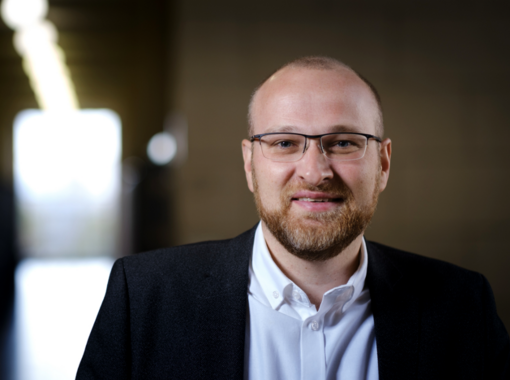
Societal Impact: Reduced Inequalities.
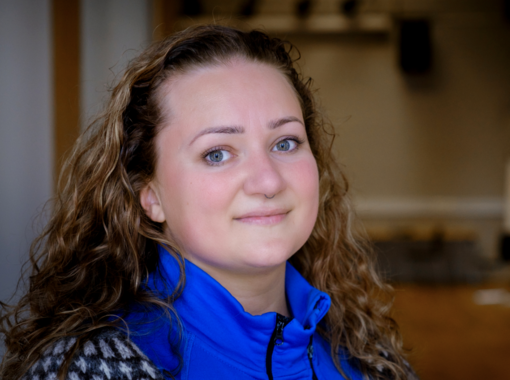
Nína Eck at the Faculty for Social Work led the study.
Societal Impact: Gender Equality.
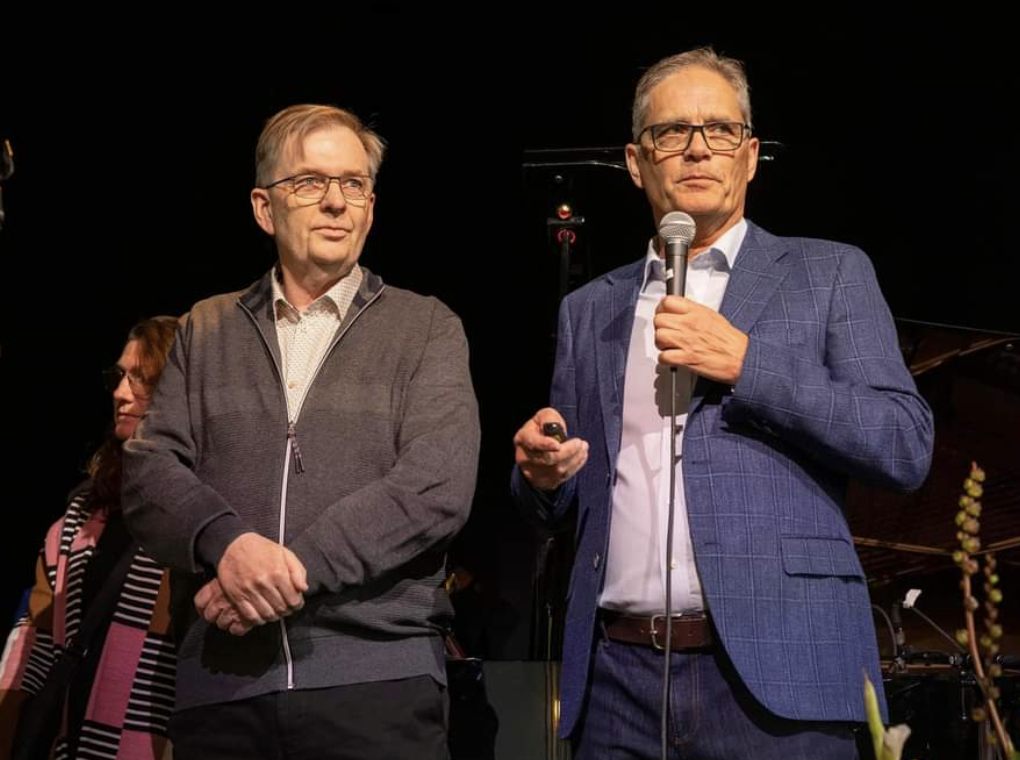
Societal Impact: Reduced Inequalities & Quality Education.
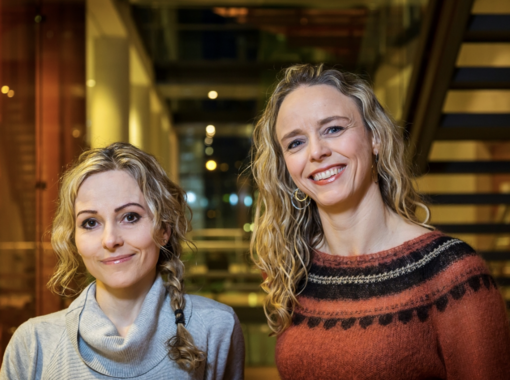
Societal Impact: Industry, Innovation and Infrastructure and Responsible Consumption and Production.
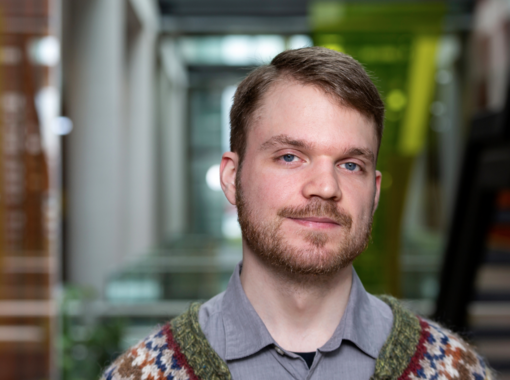
Societal Impact: Quality Education.
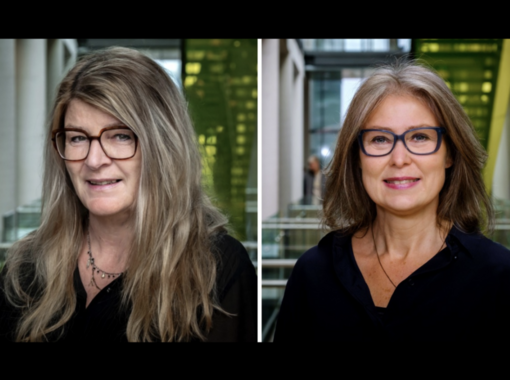
Societal Impact: Climate Action.
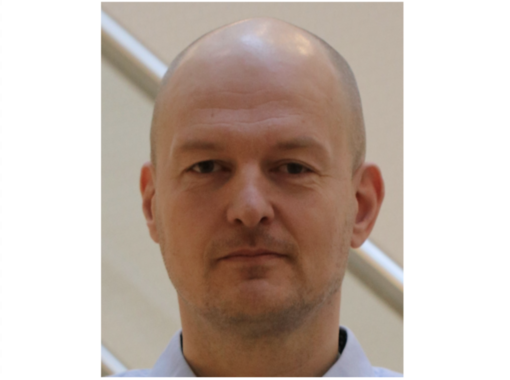
Societal Impact: Industry, Innovation and Infrastructure and Responsible Consumption and Production.
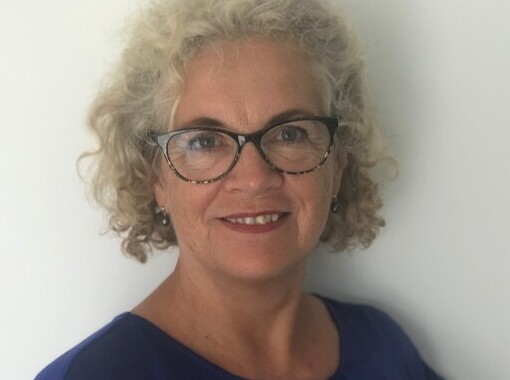
Societal Impact: Reduced Inequalities.
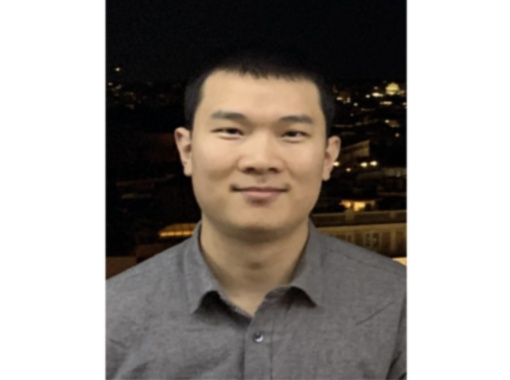
Societal Impact: Climate Action.

Societal Impact: Climate Action.
Exciting Research at UI with Societal Impact...
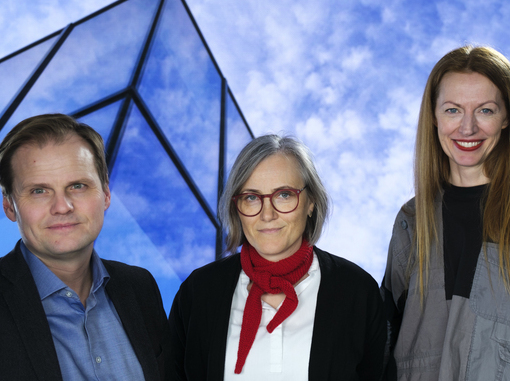
Anna Helga Jónsdóttir,
Associate Professor
Magnús Þór Torfason,
Associate Professor
Margrét Sigrún Sigurðardóttir,
Associate Professor
Universities are not only an institution where we seek an education, many of us are no doubt aware that it is also a place we have formed important friendships. Connections to peers at university are an important part of being a university student and provide support in completing studies at the university level. But what happens when a pandemic prevents students from studying locally?
Anna Helga Jónsdóttir, Magnús Þór Torfason and Margrét Sigrún Sigurðardóttir compared the relationship formation of two groups of students, those who started their studies at the Faculty of Social Sciences and the Faculty of Engineering and Natural Sciences of the University of Iceland in the fall of 2017, and then again in 2020 when university studies took place online due to COVID.
Their results show that the pandemic had a significant impact on students' relationships and networking. So significant, in fact, that half of the students who started their studies in the fall of 2020 did not make any new connections in the first one and a half semester of their study career. By comparison, for students who started their studies in 2017, the first one and a half semester was their most active period in terms of the formation of new ties.
From the results, it is evident that students who started their studies during the COVID epidemic do not have the same educational network as students who started their studies before the start of the epidemic, and it is important to consider these long-term effects that the pandemic has had on education and society.
The results of the study are published in the journal Higher Education:
Sigurdardottir, M. S., Torfason, M. T., & Jonsdottir, A. H. (2022). Social tie formation of COVID-19 students: evidence from a two-cohort longitudinal study. Higher Education, 1-19.
Societal Impact
Educational impact and Systemic impact.
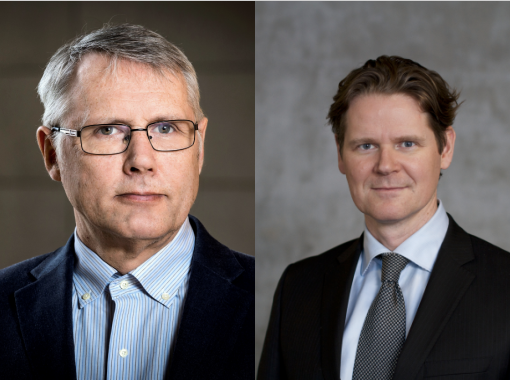
Róbert H. Haraldsson,
Head of Division of Academic Affairs
Þröstur Olaf Sigurjónsson,
Professor at Faculty of Business Administration
Universities have the role of preparing students for participation in a democratic society and in business life, as stated in the policy of the University of Iceland. Throstur Olaf Sigurjonsson, professor of business administration, and Róbert Haraldsson, professor of philosophy, have researched how student-centered teaching methods best promote students' skills, capabilities and ability to deal with ethical issues in business life, so that they can best support a democratic society.
Their research shows that Icelandic managers believe it is necessary that graduates are better able to notice ethical challenges that companies can face and how to deal with those challenges, whether they are found within the companies themselves or in their relationships with government or society as a whole.
Throstur and Róbert have used student-centered teaching methods, so that in collaboration with students, Icelandic real-life examples (e. cases) are researched, written, and published. In this way, students get direct access to how to recognize ethical issues in business life, how to solve them and, not least, how to translate such ethical issues into real-life examples so that others can learn from them.
Societal Impact
Economic impact and Societal responsibility.

Friðrik Rafn Larsen,
Associate Professor at Faculty of Business Administration
Dr. Friðrik Larsen has designed a measuring device that, among other things, shows companies and organizations how sustainable their brands are in the minds of consumers and other interest groups.
Such information helps to make informed decisions about how to promote the sustainability projects in which the companies / organizations are involved with. This also helps them to face how much/little this field affects the trust of interest groups towards them.
Societal Impact
Industry, Innovation and Infrastructure which is part of the Sustainable Development goals of the United Nations.
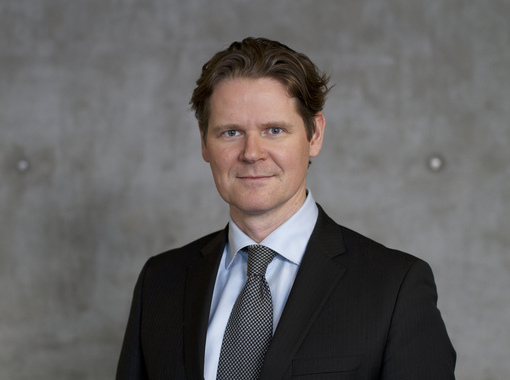
Þröstur Olaf Sigurjónsson,
Professor at Faculty of Business Administration
Jafnrétti kynjanna er hluti af heimsmarkmiðum Sameinuðu þjóðanna um sjálfbæra þróun. Er litið er til kynjahlutfalla í stjórnum fyrirtækja þá sést að breytinga er þörf. Alþjóðleg reynsla sýnir að lítið gengur að jafna kynjahlutfall í stjórnum fyrirtækja fyrr en kynjakvóti hefur verið innleiddur.
Þröstur Olaf Sigurjónsson hefur ásamt með-rannsakendum greint hvernig staðið var að innleiðingu laga um kynjakvóta í íslenskar stjórnir. Áhersla Þrastar hefur verið annars vegar á valferli stjórnarmanna, og hins vegar á áhrif á stjórnarbrag.
Vandað valferli stjórnamanna skiptir höfuðmáli, jafnt fyrir konur sem karla, og fyrir fyrirtæki og samfélag. Eftir innleiðingu laga um kynjakvóta á Íslandi var mikilvægt að rannsaka hversu vandað valferlið var, því ef það reyndist óvandað yrði erfitt að skera úr um raunveruleg áhrif innleiðingar slíkra laga. Valferlið í kjölfar innleiðingu laganna reyndist vera mjög miðað að mati á einstaklingum, konum jafnt sem körlum.
En í valferlið vantaði skýrara mat á samsetningu stjórna sem teyma. Tilurð tilnefningarnefnda kann að hafa lagað þetta. Rannsóknir á starf tilnefningarnefnda er þó enn að miklu óplægður akur. Það ríkti ekki almenn sátt um kynjakvóta í stjórnum fyrirtækja þegar lögin voru kynnt til sögunnar en sáttin jókst þegar lögin höfðu verið innleidd og reynd.
Helst voru það ungir karlmenn sem voru á móti kynjakvótanum. Það er eðlilegt, því helst er það sá hópur sem missti tækifærið að komast í stjórnir. Enn fremur voru það karlar sem höfðu óhefðbundinn bakgrunn og reynslu, sem misstu tækifærið til stjórnarsetu. Sambærilegar niðurstöður má sjá frá Noregi í kjölfar innleiðingar kynjakvóta þar. Ungar stjórnarkonur eru jákvæðastar með kynjakvótann. Þessi afstaða ólíkra hópa breyttist ekki frá þeim tíma að lögin voru kynnt þar til eftir að þau voru innleidd.
Aukin þátttaka kvenna við stjórnarborðið hefur leitt til þess að ólík sjónarmið eru rædd við stjórnarborðið þannig að ákvarðanataka hefur orðið betri, að mati stjórnarmanna. Svipuð niðurstaða er hvað varðar aðhald stjórna með forstjóra. Fjölgun kvenna í stjórnir hefur leitt til þess að aðhaldið er meira. Þetta er þó helst skoðun kvenkyns stjórnarmanna og stjórnarformanna af báðum kynjum. Karlkyns stjórnarmenn eru neikvæðari en kvenkyns um jákvæð áhrif aukinnar þátttöku kvenna á stjórnarsamstarfið. Heilt yfir er það niðurstaða að kynjakvóti í stjórnir fyrirtækja leiðir til þess að ákvarðanataka er betri. Það var markmið stjórnvalda með innleiðingu laganna.
Societal Impact
Gender Equality which is part of the Sustainable Development goals of the United Nations.
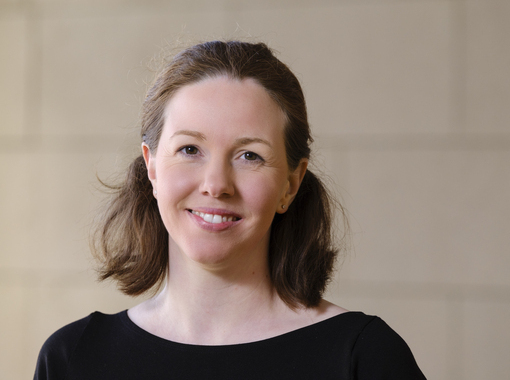
Birna Þórisdóttir,
Research Specialist at
Health Science Institute
Dr. Birna Þórisdóttir has for the past two years worked with Nordic colleges on systematic reviews for the update of the Nordic Nutrition Recommendations, NNR 2022. In addition to include an update for energy, macro- and micronutrients, NNR 2022 will integrate sustainability and environmental issues into the food based dietary guidelines. Thereby, the recommendations will help people to choose food and drink that promotes good health and wellbeing in harmony with the environment.
Most of the systematic reviews were connected with sustainability issues, for example the role of consumption of legumes, nuts and plant protein in development of cardiovascular diseases and type 2 diabetes, and the association between plant-based diets in young childhood and growth and iron-status.
The Nordic Nutrition Recommendations have a strong social impact. They are the scientific basis on which Icelandic recommendations on diet and nutrients are based, as well as the recommendations of other Nordic and Baltic countries. They are used when planning menus on all school levels, workplaces and nursing homes. The government takes diet recommendations into account in policy making, for example health plans and action plans for health and quality of life. They are also the basis for food labels, for example the Nordic keyhole, and criteria for evaluating the consumption of food and nutrients.
Societal Impact
Health and Wellbeing and Responsible Consumption and Production which are part of the Sustainable Development goals of the United Nations.

María Guðjónsdóttir,
Professor & Dean of the
Faculty of Food Science & Nutrition
Food and nutrition are topics that are important to us all, since we all need to eat.
Climate change and increased consumer demands for sustainable and healthy food call for novel solutions towards improved utilization of raw materials, optimized production, product development and quality monitoring to provide the highest possible quality, safety, security and healthiness of food to consumers.
Food and nutrition, furthermore, relate to all United Nations Sustainability Development Goals (UN-SDGs) either directly or indirectly.
The staff of the Faculty of Food Science and Nutrition, thus, strives towards making our World and society better in various ways.
Societal Impact
Health and Wellbeing and Responsible Consumption and Production, as well as being connected to other Sustainable Development goals of the United Nations in various ways, both directly and indirectly.
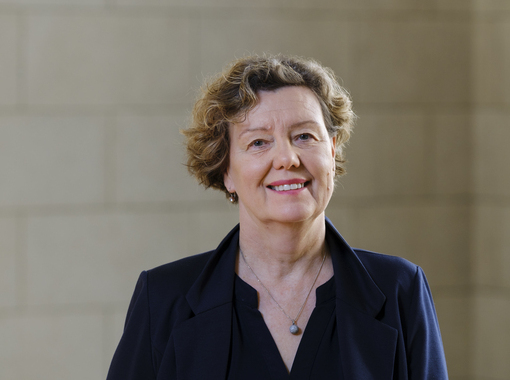
Steinunn Hrafnsdóttir,
prófessor við Félagsráðgjafardeild
WELFARE or Designing The Future Welfare Systems is an Erasmus+ project that Steinunn Hrafnsdóttir, Professor at The Faculty of Social Work and co-founder of Vaxandi, Center for Social Innovation (see link above) leads with Stefanía Kristinsdóttir, PhD student and project manager.
The main objectives of the project are to: Develop Open Educational Resources, including curriculum, online training content and training course for students, users, third sector, citizens, social entrepreneurs and other stakeholders. Promote and enhance understanding of the importance of social innovation and entrepreneurship within partners countries welfare systems. Create an Open University, training and networking environment for discourse, research and social innovation in the welfare system both within partner country’s and transnationally through the WELFARE platform. A special emphasis is put on social innovation that empowers excluded groups in the society.
Cooperative partners in the project are the University of Vives in Belgium, three social enterprises from Greese and Lithunia and Almannaheill, the umbrella association for public benefit organizations.
The development of the platform is based on a detailed needs analysis of the support environment for social innovation, qualitative interviews with social entrepreneurs and focus groups with participation of users, the third sector, professionals and researchers and other resources.
The course material will be tested in workshops in different countries, and based on it, a toolbox will be created for all those who intend to work on such projects in welfare services.
Societal Impact
Health and Wellbeing and Industry, Innovation and Infrastructure which are part of the Sustainable Development goals of the United Nations.

Sóllilja Bjarnadóttir,
PhD student in
Environmental Sociology
“The goal for my PhD project is to understand how political trust and institutional trust impacts people’s public attitudes in Iceland towards different climate change policies. In addition to that I will emphasize on understanding what impacts people’s support towards a just transition which refers to that our step towards greener societies needs to be based on justice. A part of my project will be a cross-national comparison, by examining what social factors influences people’s support towards different environmental policies in the United States, China, India and Japan.“
Societal Impact
Climate Action which is one of the Sustainable Development goals of the United Nations.
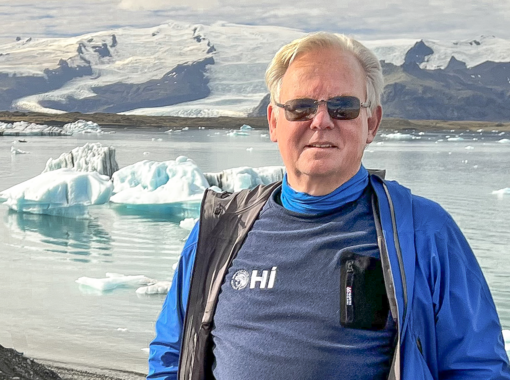
Þorvarður Árnason,
Research Scholar and Director
of the UI Research Centre in Hornafjörður
Visual research on glacier downwasting in Southeast Iceland
Glacier melting (downwasting) is one of the clearest examples of the impacts of global climatic change in present times. Such downwasting is not the most serious impact – far from it – but still sheds a certain light on the reality of what is and has been taking place; negative impacts which effect pretty much every living thing on Earth. And concurrently impacts which will persevere for the coming decades and centuries and grow ever more potent, if nothing is done.
The downwasting of glaciers is, in part, a visual phenomenon which is as such very conducive to monitoring and documentation with visual methods; the outputs of such research are, furthermore, readily utilized for science communication purposes. Þorvarður has been engaged with visual research for over a decade and now leads an interdisciplinary group of researchers at the Hornafjordur Research Centre that has developed innovative methods to portray the extent of downwasting in the glacial landscapes found in the „backyard“ of the centre, in the past, present and future.
Further information about the projects in link above.
Societal Impact
Climate Action which is one of the Sustainable Development goals of the United Nations.
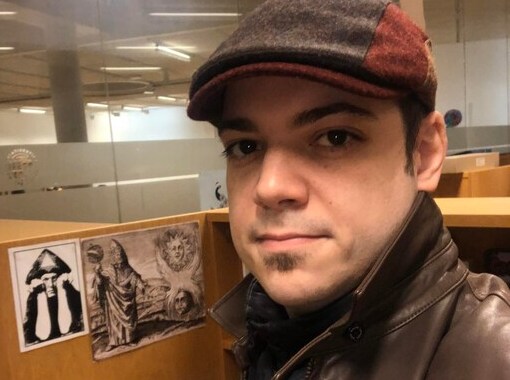
Marcello Milanezi,
PhD student in Sociology
“I imagine the impact of my PhD project comes in the sense that it helps unwrap some of the layers of the social fabric, namely how we interact with the elements of the 4th Industrial Revolution. By this revealing of the gears we discover territories that have been colonized, for instance, by capitalist interests, and we are thus able to start decolonizing efforts. Also by understanding what lies beyond our everyday experience we find the existing possibility of creating new narratives with which we can subvert policies of oppression and repression, and bring about a new social fabric that is in tune with the autonomy of the individual and can envision community with all the ecology it entails (technologies, non-human animals etc). My work is but a small part of such effort, one that focuses on understanding the degradation of autonomy by means of data colonization in Iceland.”
Societal Impact
Cultural impact and Peace, Justice and Strong Institutions which is part of the Sustainable Development goals of the United Nations.
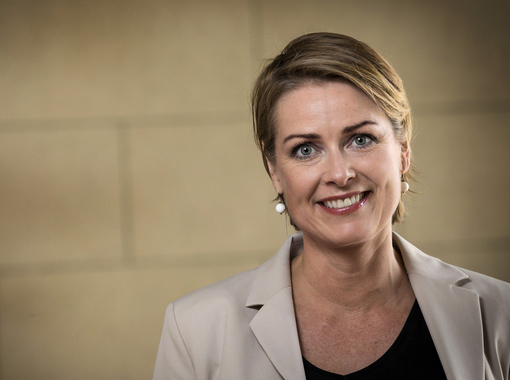
Ólöf Guðný Geirsdóttir,
Professor at the Faculty of
Food Sciences and Nutrition
Dr Ólöf Guðný Geirsdóttir, professor at the Faculty of Food Science and Nutrition and research team has been studying how the nutritional status of the elderly affects successful aging. The focus is on examining the synergistic effects of nutrition and exercise on function of the elderly, whether to maintain or prevent, or delay age-related function loss.
The results of these studies have shown, among other things, that exercise and especially resistance exercises are important for delaying the loss of physical function in the elderly, but healthy nutritional status and nutrition of the elderly is necessary build up muscular strength and function in training or rehabilitation. Our research has also shown that malnutrition among the sick and frail elderly is common in Iceland, where malnutrition reduces the body's ability to fight infections or heal wounds, as well as other serious complications that can reduce the physical and mental function of the elderly.
In parallel with research projects on the nutritional status of the elderly, Ólöf, in collaboration with an international interdisciplinary team, is working on open access teaching materials for professionals who care for the elderly with the aim that everyone can gain knowledge about the importance of food and nutrition in care of the elderly.
Societal Impact
Health and Wellbeing, Zero Hunger and Quality Education which are part of the Sustainable Development goals of the United Nations.
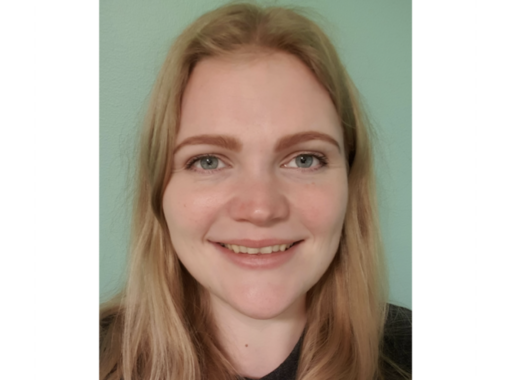
Vilborg Kolbrún Vilmundardóttir,
PhD student at the Faculty of
Food Sciences and Nutrition
Verkefnið „Áhrifaþættir sem hafa áhrif á farsæla öldrun“ er verkefni þar sem upplýsingum um lífstílsþætti einstaklinga eru skoðaðir heildrænt frá fæðingu til nánast lífsloka. Farsæl öldrun er þegar lífsgæðum og sjálfstæði er viðhaldið á eldri árum. En svo að það verði er mikilvægt að halda góðri heilsu, bæði líkamlegu, andlegu og félagslegu heilbrigði , sem er talið nauðsynlegt til að geta notið lífsins á efri árum.
Með því að skoða viðkvæman hóp eins og einstaklinga með lága fæðingarþyngd en rannsóknir hafa sýnt fram á að þessir einstaklingar hafa meiri áhættu á ýmsum langvinnum sjúkdómum eins og sykursýki, krabbameini og hjarta- og æðasjúkdómum ásamt breytingum á líkamssamsetningu auk vitrænnar getu. Sömu vísbendingar um áhrif fæðingar-þyngdar á heilsufarslegar útkomur sést einnig í þýði með almennt háa fæðingarþyngd eins og hjá Íslendingum. Með því að skoða langtíma spágildi fyrir þær breytur sem hægt er að hafa áhrif á með lífstílsbreytingum er mögulega hægt að hafa áhrif á þætti sem gætu skipt máli hvað varðar farsæla öldrun.
Ætla má að flestir telji að megin hluti lífsgæða sinna sé að verja ævinni sem lengst í sem bestu líkamlegu- og andlegu ástandi, helst heima í faðmi ættingja og vina. Lítið hefur verið skoðað hvort forsendur farsældar öldrunar séu að hluta til útskýrðar af vexti og þroska, ásamt heilsu og lífstíl snemma á lífsleiðinni. Mikilvægt að leita eftir þeim áhættuþáttum og ekki síður þeim þáttum sem hægt er að hafa áhrif á sem styðja við farsæla öldrun „frá vöggu til grafar“.
Societal Impact
Health and Wellbeing Which is one of Sustainable Development goals of the United Nations.
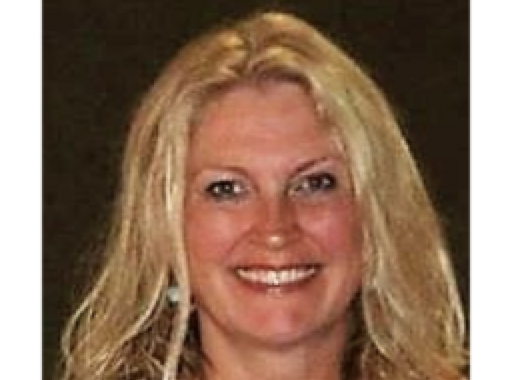
Freydís Jóna Freysteinsdóttir,
Associate Professor in Social Work
My research area is quite wide. The main focus has been on violence and neglect in families and children's risk behaviour. Furthermore, I have done research regarding homosexuality and also regarding couple relationships, e.g. what predicts happiness in relationships.
Research example: Mothers who died because of violence and how it effects their children.
The purpose of this study was to examine femicide cases in Iceland, which included mothers who had suffered from violence leading to their death. The goal was to figure out what kind of context and factors exist in such cases in order to try to prevent them in the future. Cases were explored during a thirty-five year period. A content analysis was used and both quantitative and qualitive methods in order to analyse verdicts and written web media about the cases. The results showed that eight mothers who had a total of fourteen children 20 years of age or younger, were killed in Iceland during this time-period. The murder method seemed to be related to the social context of the murders. In about half of the cases, the children were present and witnessed the violence in some way. The children lost their mother and some of them their father as well to prison, psychiatric hospital ward or death. In half of the cases a child and/or children were present when their mothers were killed. These children witnessed the murder in some way. Since these events are extremely traumatic for the involved children and other relatives, it is important for social- and health professionals to screen for violence and to be aware of warning signs to such incidents in order to prevent them.
Results showed that eight mothers who had a total of 14 children, twenty years old or younger, were murdered in this country during this period. The method seems to have been linked to the social environment of the murders. In about half of the cases, a child or children were present when their mother was murdered and thus witnessed the act in some way. In the case of the children's father, he went to prison or was placed in a psychiatric ward following the act, but in one case the father took his own life following the act. Therefore, it can be said that most of the children lost both their parents when this happened.
Since there are enormous traumas for the children and other relatives, it is important that professionals in the social sector and the health sector screen for violence. At the same time, it is important to know the symptoms and the prelude to such events so that they can be prevented.
Societal Impact
Gender Equality and Health and Wellbeing which are part of the Sustainable Development goals of the United Nations.

Ásta Jóhannsdóttir,
Assistant professor
at School of Education
"Research is very important to us all. It would be hard to create new knowledge and develop society and change it to the better without research," says Ásta Jóhannsdóttir, assistant professor at the University of Iceland's School of Education. These words are not surprising coming from Ásta as she takes keen interest in the societal impact of research.
Ásta is currently leading an extensive study with Kristín Björnsdóttir, professor at the University's School of Education, entitled Disability in the times of pandemic funded by Rannís (the Icelandic Centre for Research). A part of the research was mapping the situation of disabled people in the times of disasters and pointing out ways to improve their situation. This data was a basis for an article that was published in the peer reviewed magazine Íslenska þjóðfélagið.
There are two main principles in the article according to Ásta. On the one hand to provide an international overview of disasters, responses to them and their consequences for disabled people and on the other to analyse the Department of Civil Protection's emergency response plans with a view to disabled people.
Societal Impact
Reduced Inequalities and Health and Wellbeing which are part of the Sustainable Development goals of the United Nations.

Ólafur Páll Jónsson,
Professor of Philosophy
at Faculty of Education
Tinkering for sustainability at School is the name of a project that recently received an Erasmus+ grant. Ólafur Páll, Professor of Philosophy at the Faculty of Education, is leading it on behalf of the University of Iceland. The project aim is to support teachers who want to promote sustainability in schools, both in formal and informal education. The project is in collaboration with a Greek organization and the Science Museum in Amsterdam, which has developed so-called tinkering methods in teaching.
"The tinkering approach involves responding to problems that are often ill-defined, such as sustainability problems are in their nature, and involves experimenting with the problem. Tinkering is an approach characterized by playful and repeated experimentation, where participants are constantly reassessing their goals, exploring new paths, and imagining new possibilities.
Part of the project includes developing a toolbox that teachers can use when working with sustainability in education" says Ólafur Páll.
Societal Impact
Sustainable Cities and Communities which is part of the Sustainable Development goals of the United Nations.

Camila Pía Canales,
Research Specialist
at Faculty of Industrial Engineering, Mechanical Engineering and Computer Science
Dr. Camila Pía kynnti tvö spennandi rannsóknarverkefni sem snúa að sjálfbærri framleiðslu vetnis á árlegri ráðstefnu Functional Materials and Nanotechnology (FM&NT) sem fram fór í Ríga í Lettlandi í júlí.
Camila holds a PhD in Chemistry and is currently developing the projects at the University of Iceland in close collaboration with a group of scientists within and outside of the university. Camila has been working at the University of Iceland since 2019 and boasts 11 years of experience in the field of electrochemistry.
The first project is called AliCe-Why project, conducted in collaboration with researchers across Europe as well as professors Christiaan P. Richter and Rúnar Unnþórsson at the University of Iceland. The main goal of the project is to use aluminum waste to produce hydrogen.
The second project is related to the production of hydrogen using seawater and the future perspectives of developing this idea due to the diminishing supplies of freshwater.
Societal Impact
Clean Water and Sanitation and Industry, Innovation and Infrastructure which are part of the Sustainable Development goals of the United Nations.

Ársæll Már Arnarsson,
Professor at School of Education
Ársæll Arnarsson er prófessor í tómstunda- og félagsmálafræði við Menntavísindasvið og faglegur stjórnandi Íslensku æskulýðs-rannsóknarinnar. Auk þess stýrir Ársæll þátttöku Íslands í tveimur stærstu rannsóknum í heimi á sviði heilsu og velferðar barna og unglinga. Annars vegar er um að ræða Heilsu og lífskjör skólabarna (HBSC - Health Behaviour in School-Aged Children) og hins vegar Evrópsku vímuefnarannsóknina (ESPAD - European School Survey Project on Alcohol and other Drugs).
Niðurstöður þessara þriggja rannsóknaverkefna hafa um áratugaskeið verið notaðar af miklum fjölda erlendra vísindamanna til að kortleggja breytingar í heilsufari barna og unglinga. Þær hafa einnig hjálpað skólum, sveitafélögum, ríkisstofnunum og alþjóðlegum aðilum eins og Alþjóðaheilbrigðismálastofnuninni (WHO), Evrópuráðinu (European Council) og Barnahjálp Sameinuðu þjóðanna (UNICEF) til að móta stefnu og meta aðgerðir.
Með samningi við Mennta- og barnamála-ráðuneytið hefur umfang þessara rannsókna aukist enn frekar og taka þær nú bæði til barna niður í fjórða bekk grunnskóla sem og nemenda í framhaldsskólum. Allir skólar sem taka þátt fá ítarlega skýrslu um niðurstöður auk þess sem sveitafélög fá samskonar samantektir. Þá er skrifuð sérstök landsskýrsla þar sem lögð er áhersla á að draga fram helstu breytingar.
Societal Impact
Health and Wellbeing which is part of the Sustainable Development goals of the United Nations.
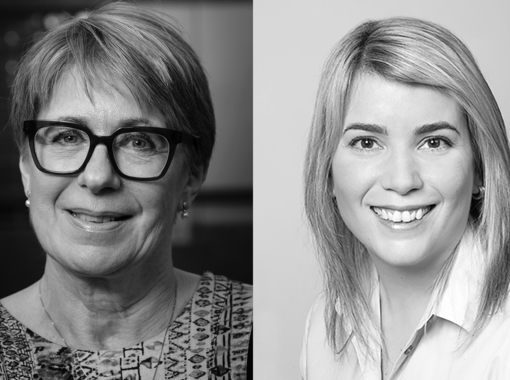
Guðný Lilja Oddsdóttir,
Adjunct Lecturer at
Department of Physiotherapy
Kristín Briem, Professor at
Department of Physiotherapy
Harpa Ragnarsdóttir, PhD student and Physiotherapist
Research is currently being conducted at UI that looks at the effectiveness of a new treatment in physiotherapy and the use of new technology aimed precisely at people who have suffered neck injuries in traffic collisions. The aim is to improve the patients' well-being and reduce the costs of the injuries.
Guðný Lilja Oddsdóttir, adjunct lecturer, and Kristín Briem, professor at the Department of Physiotherapy at the University of Iceland, are leading the research team, which also includes physiotherapist and PhD student Harpa Ragnarsdóttir. They plan to compare the success of two physiotherapy treatments short and long term using both subjective and objective measurements.
The research is strongly connected to Goal 3 of the UN Sustainable Development Goals, since it relates to equality of access to healthcare services. The innovation aspect of the research is very strong and the study represents a broad collaboration between academia and industry. Part of the research will be conducted under clinical conditions, where people are seeking physical therapy, and a high-tech company is also involved. The University of Iceland signed a partnership agreement with NeckCare in December 2019.
Societal Impact
Health and Wellbeing and Industry, Innovation and Infrastructure which are part of the Sustainable Development goals of the United Nations.
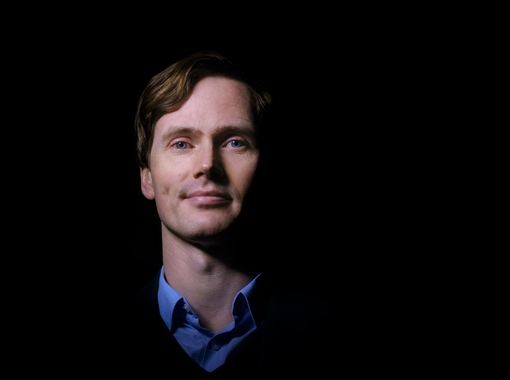
Elmar Geir Unnsteinsson,
Research Scientist at UI
Information chaos, false news, dishonesty, lies are a big part of a research project called „Insincerity for Fragmented Minds“ (InFraMinds) conducted by Elmar Geir, research scientist at the University of Iceland and an associate professor at University College Dublin, with a large group of domestic and international collaborators.
"In short, the research revolves around the connection between lies and hidden opinions. We usually assume that a lie is saying something without believing it. However, research indicate that people's beliefs are quite often hidden, so I might well believe something without realising it," says Elmar Geir.
"This study deals with a subject that can be very important socially and politically. We plan to suggest ways to reduce the negative impact of information chaos on the Internet, but we do not pretend to have any final solutions. These ways are based on the theory of dishonesty by showing how real signs of reliability can help people to create trust."
Societal Impact
Peace, Justice and Strong Institutions which is part of the Sustainable Development goals of the United Nations.

Zhao Yuan,
Assistant Professor at Faculty of Electrical and Computer Engineering
Dr. Zhao Yuan is an Assistant Professor and the Head of the Electrical Power Systems Laboratory (EPSLab) at the University of Iceland. His research work covers all aspects of electrical power systems from operations, controls to markets.
Zhao is advocating the Smart Grid in Iceland to improve the technical innovations in the energy industry, integrate more renewable energy resources and reduce the CO2 emissions to tackle the climate change challenge. He has been leading several research projects at the University of Iceland including the project to assess and enhance the security of the power system in Iceland. Zhao is helping the energy industry to a more sustainable future and educating the next generation power engineers for Iceland.
Before joining the University of Iceland, he worked as a Scientist at the Swiss Federal Institute of Technology Lausanne (EPFL) from 2019 to 2021. Zhao received the joint PhD degree from KTH Royal Institute of Technology (KTH), Comillas Pontifical University (COMILLAS) and Delft University of Technology (TU Delft) in 2018. He proposed and proved the solution existence-and-uniqueness theorems of the convex optimal power flow (OPF) model based on second-order cone programming (SOCP).
Zhao led the development of the Energy Management System (EMS) of the 560kWh/720kVA Battery Energy Storage System (BESS) on EPFL campus and co-developed the Smart Grid in Aigle Switzerland in 2020. He was awarded the China National Second Prize in Mathematical Modelling in 2010.
Societal Impact
Climate Action and Industry, Innovation and Infrastructure which are part of the Sustainable Development goals of the United Nations.

Snæfríður Þóra Egilson,
Professor in Disability Studies
In her research Snæfríður Þóra has focused on the life quality, participation and environment of disabled children and their families. A large study (LIFE-DCY) funded by the Icelandic Research Fund has just been completed. The main results obtained by questionnaires showed that disabled children rated their quality of life lower than non-disabled children in a control group. Parents of disabled children rated their children’s quality of life considerably lower than the children did themselves, even if they were asked to answer “just as their child would.”
Overall, disabled children participated in fewer activities and were less involved than non-disabled children at home, at school and in the community. Furthermore, parents of disabled children reported more obstacles, less support, and fewer environmental resources than other parents.
In-depth case studies with disabled children and focus group discussions with young disabled people revealed a complex reality where their life quality and participation were linked in terms of knowledge and power.
Societal Impact
Reduced Inequalities: The findings of the LIFE-DCY study shed light on various challenges faced by disabled children and young people. Furthermore, how ideas about normality and childhood disability are constructed and maintained, and how this may affect the lives and well-being of disabled children and youth.

Ólafur Ögmundarson,
Assistant Professor at Faculty of Food Science and Nutrition
Food production currently accounts for around 40% of global land use and 30% of all greenhouse gas emissions. There is increased efforts among governments and policy-makers to promote production and consumption of more sustainable healthy diets. To date, the carbon footprint of most domestically produced foods in Iceland has not been assessed in detail. The carbon footprint is also minimally considered when setting dietary recommendations and other food policy goals.
The interdisciplinary project “Sustainable Healthy Diets” addresses these gaps by creating a computational platform allowing for simultaneous estimation of nutrient intake and the carbon footprint of individual diets from population-based surveys or pre-fixed dietary patterns. This will provide public health authorities with objective estimates to take environmental sustainability into consideration when setting dietary recommendations and other policy goals.
This information will also be used to prioritise assessment of the carbon footprint of the most relevant/influential domestically produced foods using full life cycle assessment. Finally, we will assess the expected social and socio-economic impact that would be associated with shifting consumption and production in a direction of more sustainable diets. On the basis of this the information generated, areas where innovation and research would provide the most benefits for the Icelandic food industry and food security will be identified.
Key words sustainability, food production, carbon footprint, nutrition, LCA, food security.
Societal Impact
Industry, Innovation and Infrastructure and Responsible Consumption and Production which are part of the Sustainable Development goals of the United Nations.

Ingibjörg Gunnarsdóttir,
Professor at Faculty of Food Science and Nutrition
Foreign and domestic research strongly suggest that dietary choices, that do not align with official recommendations, are an independent risk factor for various ailments during pregnancy and can also affect the growth and development of a child. The current indications used in Icelandic prenatal care, that are related in some way to nutritional status, are the mother's weight gain during pregnancy and blood tests for concentration of hemoglobin.
Classic methods for examining dietary choices and nutritional status are time-consuming and/or expensive and are therefore not suitable for clinical practice. In 2015, research began on the possibility of using an electronic food screening list, at the beginning of pregnancy, to identify food choices that could be associated with an increased risk of complications during pregnancy, and to assess whether there is a risk of too little consumption of nutrients that play an important role for fetal growth and development (iodine, folate, omega-3 fatty acids and vitamin D). Women's responses to the food screening checklist, which only takes about 5-10 minutes to complete, were associated with the likelihood of excess weight gain, having a large baby, and gestational diabetes.
In a follow-up study, which began in the fall of 2017, the validity of the questionnaire was evaluated by comparison with measurements of known biomarkers of food intake and variables that assess nutritional status. In that study, iodine deficiency was diagnosed for the first time in the Icelandic population, and insufficient vitamin D intake was observed among a third of the participants. The research has already resulted in changed recommendations for pregnant women in relation to iodine and vitamin D.
The prenatal screening list is available in Saga's medical record system, from where it can be sent to Heilsuvera, where it can be filled out. The results published in Saga are indicative of the need for changes in food choices and/or the use of supplements during pregnancy. Food screening in prentatal care will be implemented in the autumn months of 2022.
Societal Impact
Health and Wellbeing Which is one of Sustainable Development goals of the United Nations.

Þóroddur Bjarnason,
Professor of Sociology
Þóroddur Bjarnason, Professor of Sociology has researched regional development and migration patterns in Iceland from various perspectives.
Topics of research include:
The causes and consequences of migration in Iceland.
The influence of sexual orientation, gossip, and bullying on youth migration intentions.
The predictive value of migration intentions for regional development over decades.
The effects of on-campus and distance higher education on the future residence of university graduates.
The effects of transportation infrastructure improvements on regional development.
Commuting for work, and perceptions of health care security.
The effects of migration experiences on sectarian attitudes among Catholics and Protestants in Northern Ireland.
Support for Brexit in Britain.
Tolerance towards immigrants in Iceland. Counterurbanization and microurbanization in the Nordic countries.
The results of this research has been utilized in various ways in the development of regional policies in Iceland in recent decades.
Societal Impact
Reduced Inequalities, Quality Education and Peace and Justice and Strong Institutions which are part of the Sustainable Development goals of the United Nations.

Elena Callegari,
Postdoc
SageWrite is an Icelandic startup developing the first text-generation and text-enhancement platform for academic writing. The platform works by taking in a rough draft of what researchers want to write and generates the corresponding text for them. SageWrite was co-founded by Elena Callegari, a postdoc at the University of Iceland, and Desara Xhura. The startup was created thanks to one of Rannís Tækniþróunarsjóður 2021 grant.
Elena is a researcher at the Language & technology Lab, led by professor Anton Karl Ingason. This project marks yet another collaboration between Ingason’s lab and the private sector: just recently, the Lab signed on a collaboration with the company Mentis Cura for a project on cognitive decline.
“Research drives progress: our mission is to help researchers spend less time writing their papers, and more time working on perfecting their ideas and research”, says Elena.
“The ideas remain those of the researcher; SageWrite will simply help researchers write them up faster, and better”.
Societal Impact
Industry, Innovation and Infrastructure which is part of the Sustainable Development goals of the United Nations.

Guðbjörg Ríkey Th. Hauksdóttir,
PhD student in Political Science
"My background is in Chinese studies and international affairs, so I have a long-standing interest in China and politics. After I decided to do a PhD, I knew that I wanted to look more into the expanding presence of China in the Arctic region. After discussing some ideas with my supervisor and mulling it over for some time, this was the topic I chose for my thesis project," explains Guðbjörg Ríkey, who began the project before the Russian invasion of Ukraine.
She also has a strong interest in Chinese and Russian politics and everything to do with the Arctic region. "I'm also passionate about everything to do with security and defence issues. So this topic suits my interests very well."
Societal Impact
Peace, Justice and Strong Institutions which is part of the Sustainable Development goals of the United Nations.

Emil Dagsson,
PhD student in Economics
"The goal of my research is to measure the privilege experienced by different social groups, as well as evaluating to what extent equal opportunities exist in our society. To do this, I am evaluating social mobility between generations in Iceland, the main factors being education and income. These things tell us how the socioeconomic status of parents can affect their children," explains Emil.
Í doktorsverkefni sínu heldur Emil áfram að rýna í tölfræðilegt samband milli menntunar foreldra og barna þeirra en einnig samband milli ævitekna foreldra og barna þeirra. „Slíkt gefur okkur hugmynd um hvaða áhrif samfélagsstaða foreldra gæti haft á börn þeirra, ef við gefum okkur að menntun og tekjur segi til um samfélagsstöðu fólks,“ útskýrir Emil.
Societal Impact
Reduced Inequalities which is one of the Sustainable Development goals of the United Nations.

Maximilian Conrad,
Professor
at the Faculty of Political Science
The University of Iceland's Institute of International Affairs was recently awarded a grant for three million Euro (almost 420 million ISK) from the EU’s Horizon Europe programme for its research project Reclaiming Liberal Democracy in Europe in the Postfactual Age (RECLAIM). This is a three-year grant, and the aim of the project is to study the implications of post-truth politics on democracy in Europe. The Institute of International Affairs hosts the project, and it is led by Maximilian Conrad, professor at the University of Iceland's Faculty of Political Science.
"I think that the phenomenon of disinformation, and by extension the rise of post-truth politics, is one of the biggest challenges currently facing liberal democracy. We need to find effective ways to tackle this challenge. In recent years, we have been observing a broad range of elements that contribute to the broader phenomenon of post-truth politics. The rise of populism, characterized to a large extent by a post-truth style of communication; the parallel rise of digital and social media, and the decline of the institution of journalism are examples of this.
Societal Impact
Peace, Justice and Strong Institutions which is one of the Sustainable Development goals of the United Nations.

Paul J Wensween,
Research Specialist at the Faculty of Life and Environmental Sciences
Dr. Paul studies the acoustic and movement behaviour of whales and dolphins and their responses to human-generated underwater sound.
His present work focusses on the migration movements of northern bottlenose whales and the behavioural impacts of naval sonar on this species and other cetaceans.
This research informs assessments of the conservation status of animal populations in the wild and helps navies and other ocean noise producers to reduce the environmental effects of their activities.
Societal Impact
Life below water, which is one of Sustainable Development goals of the United Nations.

Majid Eskafi,
Postdoctoral researcher in Environmental Engineering
"Ports have an important position in supply chains and economies. They play a vital role in complex transportation systems, serving as centres for the flow of goods, containers and passengers," says Majid Eskafi, postdoctoral researcher in environmental engineering at the University of Iceland, on the fascinating phenomenon of the port.
Majid is currently conducting a specialised research project looking at ports in collaboration with Icelandic businesses. This project clearly aligns with the new Strategy of the University of Iceland, UI26, which emphasises that research at UI should meet the needs of Icelandic society and industry and promote a sustainable world.
The goal of the research is to develop an innovative and highly adaptable port plan that guarantees continuous operations in a time of constant change and ensures that all expansion is appropriate for the environment and the community, in the short and long term. The team, which is made up of numerous stakeholders involved with the ports in the Ísafjörður area, is looking at social responsibility in this context. There are many ports in the area, the largest of which is in Skutulsfjörður.
Societal Impact
Sustainable Cities and Communities and Industry, Innovation and Infrastructure which are part of the Sustainable Development goals of the United Nations.

Heiða María Sigurðardóttir,
Associate Professor
at Faculty of Psychology
Dr. Heiða María is researching why some people are exceptionally good at recognising other people while others are completely face blind.
"Faces are rather special – we know, for example, that newborn babies are naturally drawn to look at faces over various other things and that there are certain parts of the brain that are stimulated a lot by looking at faces. But faces also have a distinct appearance and there are certain visual characteristics that distinguish one face from another. We want to understand whether people who are, on average, good or bad at recognising faces are also good or bad at telling other objects apart and what characteristics those objects have," explains Heiða María Sigurðardóttir, doctor of neuroscience and senior lecturer at the University of Iceland Faculty of Psychology, who is one of the researchers on this project along with her colleagues at the Icelandic Vision Lab.
Heiða María says that the team looked for participants from all along the spectrum. "From people with face blindness to people who are extremely good at recognising faces, and everyone in between. This research could tell us whether there is some special mechanism in the brain that specialises in facial recognition or whether this mechanism is also involved in distinguishing between the visual appearance of other objects, and then what kind of objects."
Societal Impact
Health and Wellbeing which is part of the Sustainable Development goals of the United Nations.

Sigurður Örn Stefánsson,
Professor of Mathematics
„The concept of probability that most of us are familiar with comes from everyday life experiences. We tend to try and predict how things will happen based on past experiences and act accordingly. A famous example is the weather forecast, our perception of it and our reaction to it. Probability in its purest form occurs in lotteries, gambling and betting, and is probably the thing that initially got people interested in studying them in a systematic way, since there is a lot to be gained," says Sigurður Örn, who recently had a scientific article published in one of the world's most respected scientific journals in the field of probability studies (Annals of Probability).
In the article Sigurður and colleagues presented new mathematical methods that are useful to research the so called random networks, which are, among other things, used in research on spread of diseases and epidemics.
Research in natural sciences such as mathematics often involve new knowledge that is not of immediate relevance to society and therefore usually only touch on fields within mathematics. Nevertheless, they are still important because, according to Sigurður, it regularly happens that very abstract results in pure mathematics lay the foundation for progress in science and technology, even decades after they first appeared on the scene.
Societal Impact
Health and Wellbeing and Industry, Innovation and Infrastructure which are part of the Sustainable Development goals of the United Nations.

Helga Helgadóttir,
Assistant Professor at Faculty of Pharmaceutical Sciences
"In my opinion, aspirin is one of the most fascinating drugs in the field of medicine. It has such a diverse range of effects and these different effects have been gradually discovered over the years. It's really remarkable," says Helga Helgadóttir, Assistant Professor at the UI Faculty of Pharmaceutical Sciences, whose research has focused on how aspirin can prevent pre-eclampsia in pregnant women.
Over the years, aspirin has been used to treat various ailments and diseases and remains the most used drug in the world, according to Helga. "It can be used as everything from a traditional painkiller and anti-inflammatory to a prophylactic against cardiovascular disease.
Recently, we have started using it in high-risk pregnancies as a prophylactic against pre-eclampsia. Aspirin lowers blood pressure in pregnant women and reduces the likelihood of impaired foetal growth, gestational hypertension and early pre-eclampsia," says Helga.
Societal Impact
Health and Wellbeing which are part of the Sustainable Development goals of the United Nations.

Þóra Másdóttir,
Assistant Professor
at Faculty of Medicine
"It is absolutely vital that we have reliable information about language development so that we can identify children who are struggling with developmental language disorders and give them the help and therapy they need to catch up with their peers" says Þóra Másdóttir, Assistant Professor at the University of Iceland Faculty of Medicine, who is now working on a new language development test designed to assess the linguistic ability of preschool children between the ages of 4 and 6.
"The older language tests used by speech pathologists are outdated and also translated and localised, which means they are not necessarily based on specific research into Icelandic acquisition," says Þóra. "We wanted to design a test that was based on research on Icelandic and the fundamental features of the language."
"In speech pathology, it is vital to use evidence-based research when it comes to helping patients, both children and adults, who struggle with communication disorders," says Þóra. "We need to be able to reliably diagnose those who require the services of a speech pathologist. For this reason, reliable and fair evaluation tools are an invaluable part of the speech pathologist's toolbox."
Societal Impact
Health and Wellbeing and Industry, Innovation and Infrastructure which are part of the Sustainable Development goals of the United Nations.

Ingólfur Ásgeir Jóhannesson,
Professor at Faculty of Education and Diversity
"There are concerns in our society about the numbers of women leaving the teaching profession, including the fact that many young teachers do not last long in the job. Sometimes the discussion focuses more on worries about getting more men into teaching, but the fact is that when there are vacant teaching positions, gender and age don't really matter – the only thing that matters is whether you are able to work with the children and teenagers who need a teacher," says Ingólfur. Along with his colleagues, he is currently investigating how newly qualified female teachers manage during their first two years as compulsory school teachers and to what extent their experiences in compulsory schools are related to preconceptions about sex and gender roles.
"Compulsory school teaching is a demanding profession in many ways. Teachers need to be able to fulfil a wide range of responsibilities that involve caring for their pupils. I believe that a caring approach is a professional value and that teachers of any gender must follow working practices that are driven by that caring approach. There is a fairly significant tendency in the discourse about teaching to define a caring attitude as an inherently female quality, and to argue therefore that women are better suited to teaching young children. We are going to explore this issue in the research," explains Ingólfur.
Societal Impact
Gender Equality and Quality Education which are part of the Sustainable Development goals of the United Nations.

Jóhanna T. Einarsdóttir,
professor of speech pathology at Faculty of Medicine and School of Education
Iris Edda Nowenstein,
PhD student in Icelandic linguistics
Hjördís Hafsteinsdóttir
speech and language therapist
New research by three scientists at the University of Iceland suggests that bilingual children who speak Icelandic as a second language acquire limited Icelandic in preschool. The main findings of the study are concerning, showing that bilingual children demonstrate much lower proficiency in Icelandic compared to the average proficiency of their monolingual peers in all observations.
The scientists say that the gap proved much wider than could have been predicted based on comparable research in larger linguistic communities. They say that their findings are extremely serious and should prompt a change of attitude towards linguistic exposure for bilingual preschool children. Action must be taken to strengthen the Icelandic skills of bilingual and multilingual children in Iceland.
The scientists behind the study are Jóhanna T. Einarsdóttir, professor of speech pathology at the UI Faculty of Medicine and the School of Education; Iris Edda Nowenstein, MS in speech pathology from UI and PhD student in Icelandic linguistics; and Hjördís Hafsteinsdóttir, speech and language therapist, who have recently published a paper on the results of their research in the journal Netla.
Societal Impact
Quality Education & Reduced Inequalities which are part of the Sustainable Development goals of the United Nations.

Þórarinn Guðjónsson,
Professor at Faculty of Medicine
It sometimes happens that the side effects of a drug prove helpful in tackling completely different issues or diseases than those it was originally developed to treat.
This particular study, that Þórarinn Guðjónsson leads, aims to explore how and whether the broad-spectrum antibiotic azithromycin could help the many people who suffer with serious skin diseases.
"Our project is about researching the effects of macrolide antibiotics on cell differentiation in epidermal cells. Although skin diseases are seldom fatal, they place a considerable burden on sufferers and the healthcare system alike. Weakening of the epithelial barrier is shown to be an underlying cause of a high proportion of skin diseases."
This is certainly an innovative project, based on fascinating experiments into the effects of new drugs. Þórarinn and his colleagues intend to research how these new compounds, which scientists have named dermolides, affect cultures of epidermal cells.
Societal Impact
Health and Wellbeing and Industry, Innovation and Infrastructure which are part of the Sustainable Development goals of the United Nations.

Arnfríður Guðmundsdóttir,
Professor in Theology
Theology and feminist theology are mainstays in the research of Dr. Arnfríður. She has conducted research in theology based on feminism and in the field of environmental theology. One of the guiding principles has been the question of the experiences that are taken into account in society at any given time and how women are affected in that regard. Arnfríður further believes that the role of theology is to interpret and define our relationship with nature, and points out that man has subjugated nature in a similar way to that of the man who has dominated the woman.
Societal Impact
Gender Equality: Making theological arguments for equality in a broad sense, especially within the Church.
Climate Action: To demonstrate the importance of the religious element in the increasing awareness of the value of nature and the fight against climate change.

Sif Ríkharðsdóttir,
Professor in Medieval Literature
Dr. Sif Ríkharðsdóttir research is focused on cross-cultural and comparative studies of medieval literature, emotion theory, particularly literary emotionality, translation studies, voice and gender. In the research project Emotion and the Medieval Self in Northern Europe the aim was to explore the performance of emotion in medieval literature and the implications such performativity has for medieval selfhood and self-awareness in Northern Europe.
Societal Impact
Cultural impact: Research on the Icelandic cultural heritage and performance of emotion in Northern Europe and its relation to selfhood in the Middle Ages.

Orri Vésteinsson,
Professor in Archaeology
Orri says that the ideas about past societies are never more accurate than the knowledge we have about them, and that the role of archeology is to update these ideas in light of new research. Orri describes this role as identity maintenance. "In my mind, it's a way of studying people - and studying people in the past gives us a broader perspective on our own society."
Societal Impact
Cultural impact: Keeping knowledge up to date on the societies of past centuries, raise new questions and make attempts to answer them.

Dalrún Kaldakvísl Eygerðardóttir,
Postdoc in History
Dalrún Kaldakvísl Eygerðardóttir says that when doing historical research she always relies on the interview format in order to record the voices and experiences of Icelanders; oral history. Her research is interview based and spans everything from writing books about female drifters and female hermits to doctoral research about housekeepers in rural Iceland. Now Dalrún has turned to the adventurous research of marine environmental history. There she investigates the history of shark fishing in Iceland, from ancient times to the 21st century. The vast kingdom of the ocean has not been prominent on the history storyboard, globally speaking. That‘s why Dalrún thinks it‘s important to give the Icelandic ocean and it‘s people a voice – and does it by gathering new information and points of view by interviewing those who live in close proximity of the ocean.
Societal Impact
Culture and Life below water: History, culture and oral preservation.

Gunnar Stefánsson,
Professor of Statistics
Kristján Gíslason,
Sliding Through Foundation
The non-profit organisation Education in a Suitcase, which is centred around a teaching system developed by scientists at the University of Iceland, received a grant this year of ISK 5 million from Kristján Gíslason of the Sliding Through Foundation. The grant will be used to help students from the poorest regions of Africa access higher education. Thanks to the non-profit organisation, its benefactors and the teaching system, students in Kenya were able to access education during the pandemic despite the fact that schools were closed.
The teaching system is called tutor-web and contains educational material, for example in subjects like mathematics, statistics and computer science, as well as exercises that help students master the material. The system was developed by Gunnar Stefánsson, professor at the UI Faculty of Physical Sciences, and Anna Helga Jónsdóttir, senior lecturer at the same Faculty, in collaboration with software developers. Over the past decade, it has been used to teach statistics and mathematics at the University of Iceland and Icelandic upper secondary schools, as well as in Kenyan schools as part of the Education in a Suitcase initiative, established in collaboration with Kenyan academics.
Societal Impact
Reduced Inequalities and Quality Education which are part of the Sustainable Development goals of the United Nations.

Inga Þórsdóttir,
Professor at Faculty of Food Science and Nutrition
Dr. Inga conducted research on the nutrition of Icelandic infants (1995 and 2005). The results of the previous study had a major impact on changes in recommendations for Icelandic infants. Iron deficiency was diagnosed in a previous study that was attributed to excessive consumption of regular cow's milk after breastfeeding ended (we did not use infant formulas).
Stoðmjólk (follow-on ready to drink formula) was developed from this research project and changed infant dietary recommendations that resulted in that iron deficiency was not diagnosed 10 years later, in the year 2005.
Iron deficiency among infants can have irreversible effects on children's development (results showed links between iron deficiency in 12-month-old children and development at 6 years of age in the previous study).
Societal Impact
Health and Wellbeing Which is one of Sustainable Development goals of the United Nations.

Pétur Orri Heiðarsson,
Associate Professor
in Physical Sciences
Dr. Pétur Orri, Associate Professor in Physical Sciences, alongside other scientists at the University of Iceland, has studied how the human body accesses genetic information that affects all bodily functions. The study examines relatively newly discovered proteins that, unlike other proteins, do not have a fixed three-dimensional structure. These proteins are unstructured and scientists are just beginning to understand their power and importance in biology and disease and how these proteins affect the availability of information in the human genome.
Societal Impact
Health and Science: Impacts state of knowledge in Biochemical Sciences.

Rúna Sif Stefánsdóttir,
Assistant Professor at Faculty of Health Promotion, Sport and Leisure Studies
Dr. Rúna Sif, has been researching sleep and its relationship with academic performance and cognitive aspects in Icelandic youth for the past few years. Rúna's research is part of the project Health behaviours of young Icelanders, it is a long-term study of the state of health aspects of young Icelanders and their relationship with sleep, physical activity and the school environment. Rúna's main goal has been to measure, with an objective measure, the sleep of Icelandic youth between the ages of 15 and 17, during the school transition from primary school to secondary school, and to examine whether their sleep patterns are related to academic performance and cognitive factors.
Societal Impact
Health and Wellbeing Which is one of Sustainable Development goals of the United Nations.

Hans Tómas Björnsson,
Professor at Faculty of Medicine
Dr. Hans Tómas, Professor at the University of Iceland Faculty of Medicine has focused in particular on one disorder, Kabuki syndrome, which is caused by loss of function variants in either of two genes encoding histone-modifying enzymes. Kabuki syndrome causes intellectual disability, growth deficiency and immune dysfunction.It has previously been generally accepted among scientists that intellectual disability cannot be treated after birth. However, Hans Tómas and his team believe that their research and other studies contradict this theory, at least in the case of Kabuki syndrome, and suggest that intellectual disability can in fact be treated. Indeed, the team's end goal is to develop a safe treatment that can reduce the severity of the syndrome.
Societal Impact
Health and Wellbeing Which is one of Sustainable Development goals of the United Nations.

Úlf Níelsson,
Professor at Faculty of Business Administration
Icelanders are, like other nations, getting older. This can be can be attributed to better health, better quality of life, and medical progress. This significant increase involves diverse challenges for our community and furthermore raises the question whether people save enough money to maintain their standard of living during their old age, which is getting longer and longer. Úlf Níelsson, professor at the University's Faculty of Business Administration, is tackling these questions in his current research.
"This fundamental question has until now received more attention in models in theoretical economics than studies based on data from the real world. The reason is first and foremost lack of sufficiently solid data for an adequately large cohort. The Nordic countries have in recent years begun to gather and publish detailed data on pension savings and individual accumulated wealth. This has opened up the possibility of answering the research question more accurately and clearly than before," says Ulf.
The results are not only important from a theoretical point-of view, but also from a societal one as it is imperative for the government and policy makers to have solid data that provides them with the opportunity to react and prepare for a future crisis in pension issues and to discover where the problems lie.
Societal Impact
Reduced Inequalities which is one of the Sustainable Development goals of the United Nations.

Nína Eck,
Faculty for Social Work
A recent University of Iceland study focuses on the experiences and feelings of fathers who see their children less than every other weekend. The reactions of child protection committees and civil magistrates to the problems fathers face when seeking more time with their children were also examined.
Nína Eck at the Faculty for Social Work led the study, under the supervision of Guðný Björk Eydal, professor at the Faculty of Social work and Ingólfur V. Gíslason professor at the Faculty of sociology, anthropology and folkloristics.
Nína says that the research has shown that children who spend an equal amount of time with each parent feel safe in their relations to them both. There is a certain element of innovation in the study, not least in opportunities for independent social workers to offer their services.
Even though UN sustainable goal number five on gender equality only mentions women and girls, the connection between father and child is a clear according to Nína, and important equality matter and applies in that context
Societal Impact
Gender Equality which is part of the Sustainable Development goals of the United Nations.

Hulda Þórisdóttir
Associate Professor of political science
Conspiracy mentality around the globe tends to be particularly pronounced on the political fringes. Results of surveys involving more than 100,000 participants in 26 countries show a correlation between belief in conspiracies and identification as far-left, and, in particular, far-right. The results were published in Nature Human Behavior recently and Hulda Þórisdóttir, associate professor of political science at the University of Iceland is one of the authors.
Conspiracy theories have circulated at all times, in all cultures, and among all populations. They routinely appear in conjunction with major incidents, such as those that today take the form of terrorist attacks, the COVID-19 pandemic, and presidential elections.
The aim of the international research team was to explore a possible relationship between political orientation and conspiracy mentality. Another consideration was whether a perceived lack of political control – because, for example, an individual's preferred political party has been excluded from government – influenced the link between political orientation and conspiracy mentality.
In general, the results revealed a correlation between political views and the tendency to endorse conspiracy theories.
Societal Impact
Peace, Justice and Strong Institutions which is one of the Sustainable Development goals of the United Nations.

Sigrún Þorsteinsdóttir,
Postdoc at School of Education
Sigrún Þorsteinsdóttir, Postdoc at the School of Education, has dedicated her research to training the taste buds of children and parents. The study is completely innovative and takes the form of a course for children and parents, involving a repeated introduction of all kinds of foods in a relatively short amount of time.
The main emphasis in the taste buds training is the choice of food, fussiness and well-being, among children and parents alike. Games and joy are the guiding light and no one is forced to taste anything. The main issue is to spark curiosity and have fun. Sigrún's supervisor in the doctoral thesis was Anna Sigríður Ólafsdóttir, professor of nutrition at the School of Education, who had the idea for the project.
This project is in line with the UN Sustainable Development Goals on sustainability; one of the main focal points of the University Strategy, UI26. Information technology was used for the benefit of the project, by developing a special app for smartphones to make food registration easier for the participants.
Societal Impact
Industry, Innovation and Infrastructure and Responsible consumption and Production (flexitarian diet and reducing food waste) which are part of the Sustainable Development goals of the United Nations.

Jóhann Örn Sigurjónsson,
PhD student in
educational sciences
Various research projects within in the School of Education focus on developing and improving teaching at all levels; either by new teaching methods or by re-evaluating and changing existing methods. Jóhann Örn Sigurjónsson, doctoral student in educational sciences, is among those invested in these subjects and is currently focusing on how teaching mathematics can be improved in the senior years in primary schools, both here in Iceland and elsewhere in the Nordic countries.
"Excellence in teaching is made up of many factors. Feedback to students, the quality of explanations and time management are among them. However, I am looking at cognitive activation in my study. Cognitive activation is both the level of challenges presented in the project selected by the teacher and how they are executed in the classroom“.
Jóhann's doctoral thesis is a part of a large research project at eight Nordic universities led by Quality in Nordic Teaching (QUINT) at the University in Osló.
Societal Impact
Quality Education which is part of the Sustainable Development goals of the United Nations.

Rannveig Björk Þorkelsdóttir,
Associate Professor at School of Education
Jóna Guðrún Jónsdóttir,
Adjunct Lecturer at School of Education
"The project focuses on changing students' attitudes and encouraging them to take radical action against the climate change crisis in their own communities whilst networking with other schools abroad. This gives students the opportunity for a joint effort worldwide in the field of climate change," say Rannveig Björk Þorkelsdóttir, associate professor and Jóna Guðrún Jónsdóttir, adjunct lecturer; both at the Faculty of Subject Teacher Education. Rannveig Björk and Jóna Guðrún lead, on behalf of the University, an international study on environmental awareness that received almost 50 million ikr from the Erasmus+ programme of the European Union last year.
The study is designed to support both teachers and students in elementary and upper secondary schools in the fight against current challenges due to climate changes. "The aim of the ActGreenStory (AGS) research is to develop course material where digital stories are used to spark students' interest in climate change. This requires knowledge acquisition; from raising awareness on environmental issues among the students to real action. This is done to encourage tackling and solving current social challenges, stimulate critical thinking, creativity and increase competences in digital processing," says Rannveig.
Stories affiliated with the project will be created and distributed to interested parties in the European green community in order to enforce further action in climate issues.
Societal Impact
Climate Action which is one of the Sustainable Development goals of the United Nations.

Sveinbjörn Gizurarson,
Professor in
Pharmaceutical Sciences
Dr. Sveinbjörn has developed a new way to treat seizures with the nasal spray Nayzilam. Family members, colleagues and friends and acquaintances can now assist patients by offering the medicine via nose spray instead of having to go to the hospital and getting the medicine intravenously.
Societal Impact
Health: Increases patient's quality of life and mobility.
Economical: Reduces cost in public health care system.

Snorri Þór Sigurðsson,
Professor in Physical Sciences
Snorri Þór, Professor in Physical Sciencies at the School of Engineering and Natural Sciences at the University of Iceland and his colleagues at CEA Research Organisation and The Université Grenoble Alpes have been working on designing and building stable biradicals that can be used in dynamic nuclear polarization or DNP. Measuring time of spectroscopy is shortened and more accuracy assured.
Societal Impact
Economical: Reduces cost and increases accuracy.

Emily Lethbridge, Research Associate Professor
Emily developed the database webpage Nafnið.is which provides searchable access to the place name collection at The Árni Magnússon Institute. The project was done in collaboration with Aðalsteinn Hákonarson and other staff at The Árni Magnússon Institute in Icelandic Studies and The National Land Survey of Iceland. Users can look up toponym records by town names or counties in the database.
Societal Impact
Cultural: Preserves Icelandic toponym/place name information for future generations.

Vilhelm Vilhelmsson,
PhD in History
Dr. Vilhelm Vilhelmsson, Director of The University of Iceland's Research Centre in North West Iceland says that various modern attitudes, values and norms have been shaped by the reality of previous generations. An increased understanding of this reality results in a better and clearer identity. His main research focus has been on coercive labour relations and the power relations of everyday life in preindustrial Iceland, particularly in the eighteenth and nineteenth centuries.
Societal Impact
Societal Responsibility: In order to influence society, it is important to communicate what researchers do, to the "owners" of the story - "which is all Icelanders or the whole world for that matter".

Unnur Anna Valdimarsdóttir, Professor of Epidemiology
Hilda Björk Daníelsdóttir, PhD student in Interdiciplinary Studies
Hilda Björk Daníelsdóttir, PhD student and Professor Unnur Anna Valdimarsdóttir are behind the extensive SAGA Cohort study. Findings from the study show that multiple adverse childhood experiences are strongly associated with mental health problems and lower coping ability in adult women. The SAGA Cohort is a research project at the University of Iceland, one of the largest of its kind in the world. In 2018-19, around 32,000 women living in Iceland participated in the study, or 30% of working-age women in Iceland. The study found that protective factors for mental health such as good social support and socioeconomic status had little or no impact on the link between ACEs and lower resilience and mental health symptoms in adulthood. This shows what a significant impact adverse childhood experiences can have on women's long-term health and how important it is to prevent these adverse events and support children who are affected.
Societal Impact
Health and Wellbeing: Health, Education, Prevention and Awareness.

Haukur Logi Karlsson
Postdoc at Faculty of Law
Haukur Logi Karlsson is investigating competition law to discover whether it would be beneficial to expand the law so that it addresses not only consumer interests but also worker interests.The research is intended to contribute to the discussion taking place now in both the US and Europe about worsening conditions for workers in our globalised economy, where companies are continually growing larger and concentration of market control is increasing. The research maps what could be done within competition law to protect workers' interests in the face of companies' increasing control over the labour market. This mapping will focus in particular on the theoretical foundation for competition law, which is based on both jurisprudential and economic considerations.
Societal Impact
Economical Impact: Economy, politics and society. The theoretical basis of the competition law is studied, on a legal philosophical basis and an economic basis.
